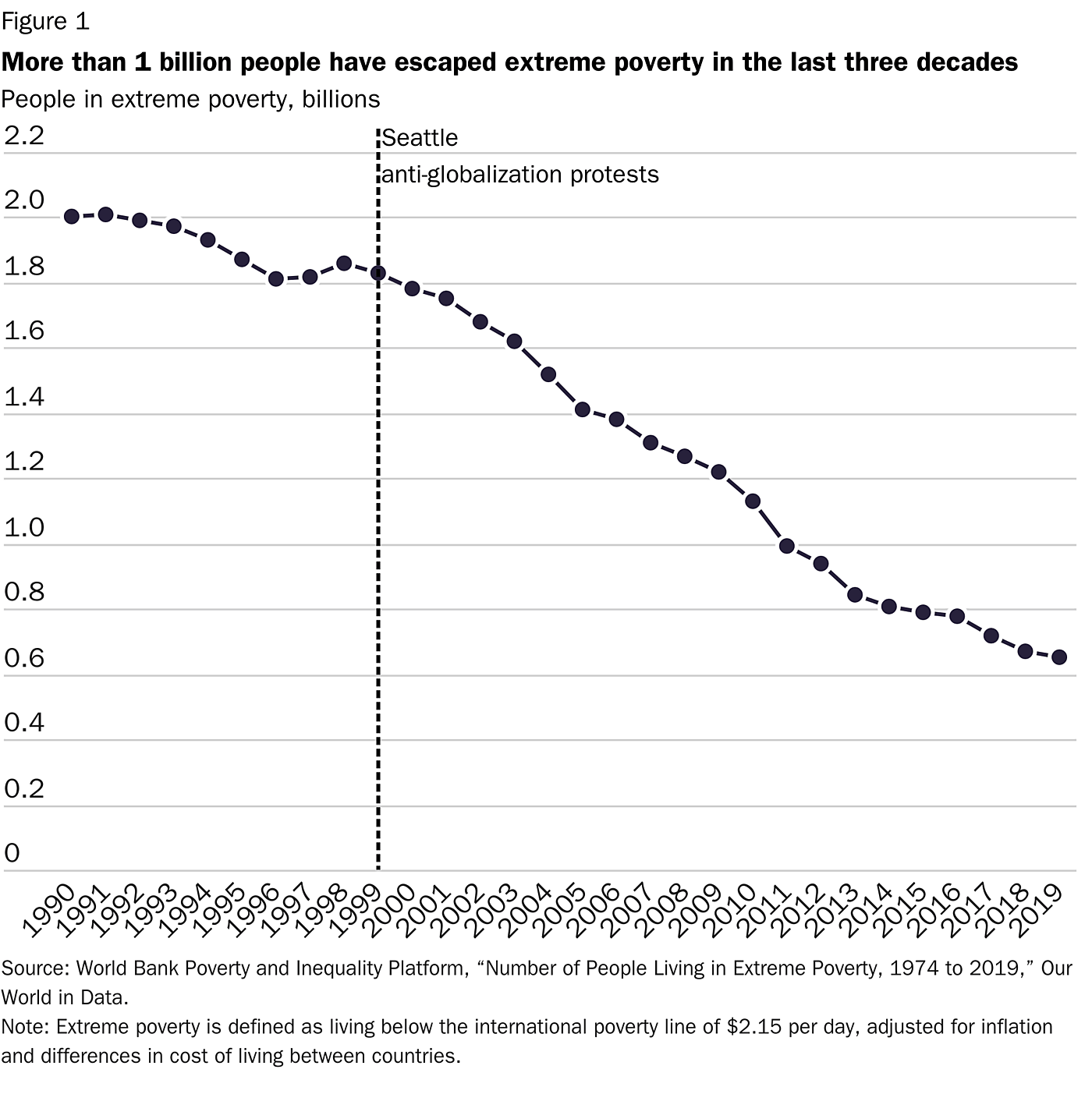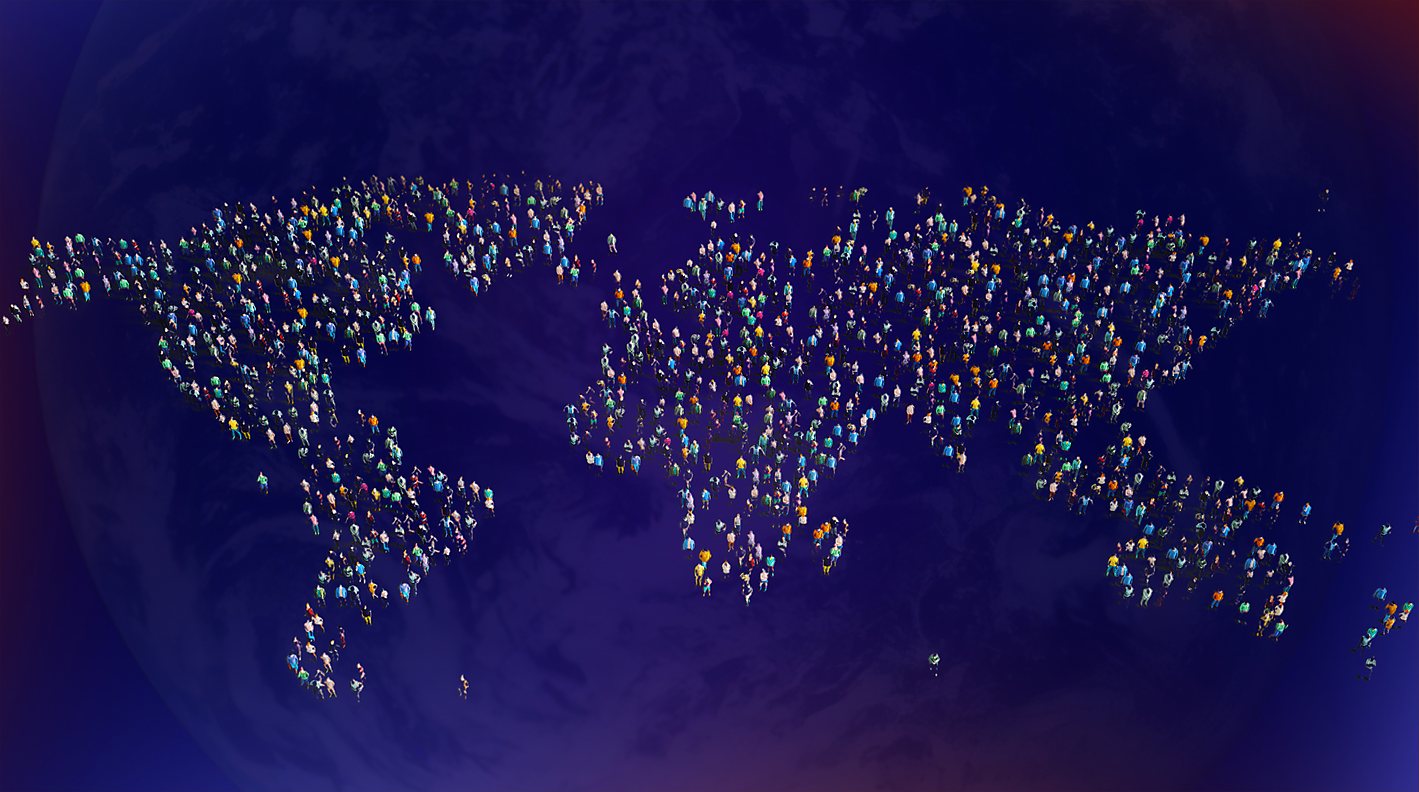The last few years have witnessed a renewed attack from the left and right—in the United States and abroad—on the relatively free movement of things, people, capital, and ideas across national borders, aka “globalization.” Critics argue that quasi‐religious devotion to market fundamentalism among neoliberal or libertarian elites drove decades of unfettered and ever‐increasing global integration. They say that far from achieving the mass prosperity, peace, and democratization that the “globalists” predicted, globalization actually delivered poverty, joblessness, economic fragility, and geopolitical insecurity, all while hollowing out the global middle class, destroying older industrial communities, and fueling the now‐unstoppable rise of authoritarian regimes. Some have even gone so far to claim that recent events—the rise of global populism and authoritarianism, the COVID-19 pandemic, marked changes in China’s economic and geopolitical trajectory, and so on—have finally ushered in the “death of globalization” and the return of localized economic activity.
In short, critics of globalization argue, we were promised the “end of history” but instead got empty store shelves, authoritarian invasions, and Donald Trump—problems that the critics say only deglobalization can fix.
This clear, simple anti-globalization narrative, however, is also mostly wrong—typically taking a nugget of truth and then wildly extrapolating a goldmine underneath. Consider the following examples:
- Tariffs have surely declined around the world, but we hardly live in an age of unfettered trade, migration, and capital flows—as anyone even passingly familiar with the Jones Act, the antidumping law, or U.S. green card obstacles can attest.
- Manufacturing jobs have fallen in the United States, but they’ve followed a similar path in almost every industrialized nation in the world—including ones with active industrial and labor policies and persistent trade surpluses—and have steadily occurred despite myriad U.S. government efforts to reverse the long-term trend.
- New foreign competition (imports, immigrants, etc.) surely has disrupted certain companies and workers once protected by their governments, but it’s also boosted living standards, fostered innovation, and supported tens of millions of good jobs, including in manufacturing.
- Certain older industrial cities do indeed remain depressed following decades of trade liberalization, but far more of them—for example, former textile town Greenville, South Carolina—moved on, embraced the 21st-century global economy, and are today thriving.
- Economic interdependence raises resiliency and security issues when global or overseas shocks occur, but it also mitigates domestic shocks, discourages armed conflict, and speeds adjustment.
- And the world has surely witnessed a resurgent populism in recent years, but globalization is at most only one of this trend’s drivers and at least only an excuse for what are actually cultural, noneconomic motivations.
Critics of globalization also fail to grasp at least two core and undeniable truths about it. First, government action—tariffs, trade agreements, capital controls, visas, etc.—is only part of globalization’s story, several chapters of which were written thanks to new technologies like the shipping container or before today’s governments and political borders even existed. As Adam Smith wrote in The Wealth of Nations, “man is an animal that bargains,” as humans are unique in our ability to peacefully exchange goods and services to meet our needs and improve our lives. Globalization, therefore, is primarily a story about humanity, not soulless multinational corporations or faceless political regimes.
Second, anti-globalization champions revel in the mess and disruption that open trade and migration can produce yet ignore the only alternative to our modern globalized world—a more fragmented and static system that has been repeatedly shown to have more conflict, less freedom, and more poverty, even for those in the developed world supposedly left behind by today’s economy and especially for the developing world’s most vulnerable people.
Indeed, despite all of global capitalism’s foibles and missteps, its long-term direction and effects are undeniably positive for the human race. Since the famous 1999 anti-globalization protests in Seattle, in fact, the world has seen more than a billion people escape extreme poverty (see Figure 1), thanks in no small part to what those protesters sought to dismantle. And we’ve enjoyed similarly breathtaking improvements in child labor, inequality, and other important metrics—all as wages and employment in the United States have continued to rise.

As U2’s Bono—hardly a doctrinaire libertarian—told the New York Times in 2022:
I ended up as an [antipoverty] activist in a very different place from where I started. I thought that if we just redistributed resources, then we could solve every problem. I now know that’s not true. There’s a funny moment when you realize that as an activist: The off-ramp out of extreme poverty is, ugh, commerce, it’s entrepreneurial capitalism. I spend a lot of time in countries all over Africa, and they’re like, Eh, we wouldn’t mind a little more globalization actually. [Emphasis added]
Our current generation of protesters would deny this wish.
For these and other reasons, the Cato Institute has launched Defending Globalization, a new project aimed at both correcting the record on globalization—what it is, what it has produced, what its alternatives are, and what people think about it—and offering a strong, proactive case for more global integration in the years ahead. Our case will be based not only on reams of data and scholarly research but also on an understanding of the essential humanity of trade and migration that just so happens to cross political borders.
The Defending Globalization project will therefore consist of several parts to be rolled out over the next year:
- an online library of accessible essays on globalization issues written by both Cato Institute scholars and outside experts representing a wide range of policy and political views;
- other written pieces highlighting the new project papers and related academic work, and correcting common public misperceptions about globalization;
- an interactive quiz on the myths and realities of globalization;
- new polling on Americans’ views of globalization;
- events on globalization and its critics (Bono is invited but not yet confirmed); and
- videos and other media on both the facts and faces of globalization—real people who benefit greatly from our globalized world.
You’ll find these items and more at Cato’s new Defending Globalization webpage. We hope you enjoy it.
Globalization, like any market phenomenon, is imperfect and often disruptive. But the movement of goods, services, people, capital, and ideas across natural or political borders has also produced immeasurable benefits—for the United States and the world—that no other system can match. In that same interview, Bono added,
[Economist Thomas Piketty] has a system of progressive taxation and I get it, but the question that I’m compelled to answer is: How are things going for the bottom billion? Be careful to placard the poorest of the poor on politics when they are fighting for their lives. It’s very easy to become patronizing. Capitalism is a wild beast. We need to tame it. But globalization has brought more people out of poverty than any other ‑ism. If somebody comes to me with a better idea, I’ll sign up. I didn’t grow up to like the idea that we’ve made heroes out of businesspeople, but if you’re bringing jobs to a community and treating people well, then you are a hero. That’s where I’ve ended up.
Defending Globalization is a tribute to those heroes and others like them, and we at Cato are happy Bono’s here with us (in spirit, at least).
And as for that “better idea,” we’re confident he’ll never find it.

This work is licensed under a Creative Commons Attribution-NonCommercial-ShareAlike 4.0 International License.

